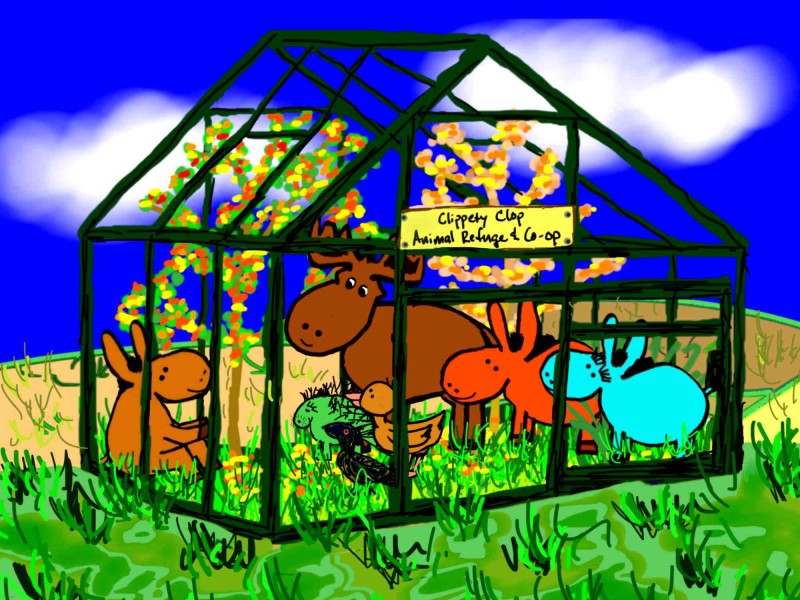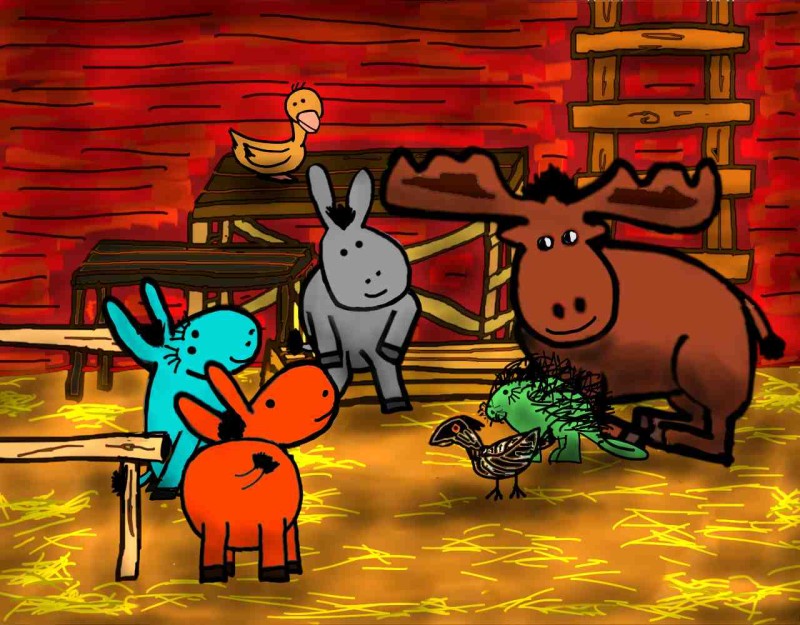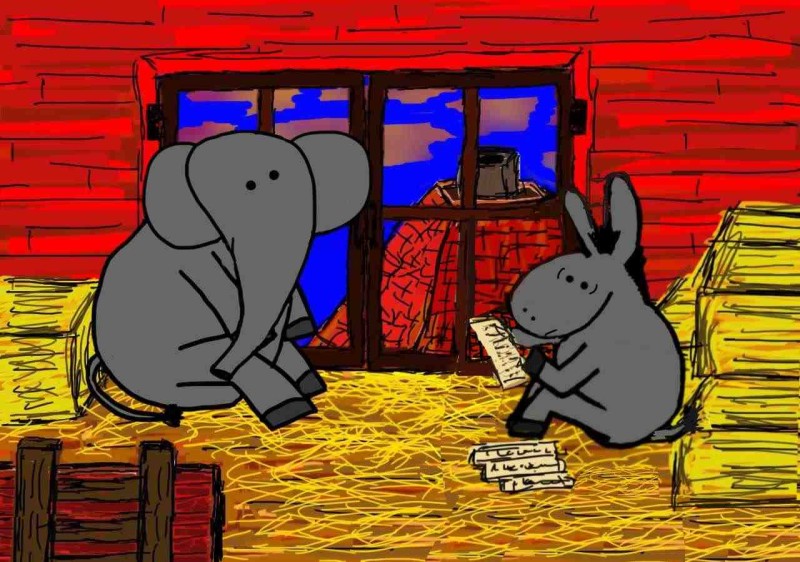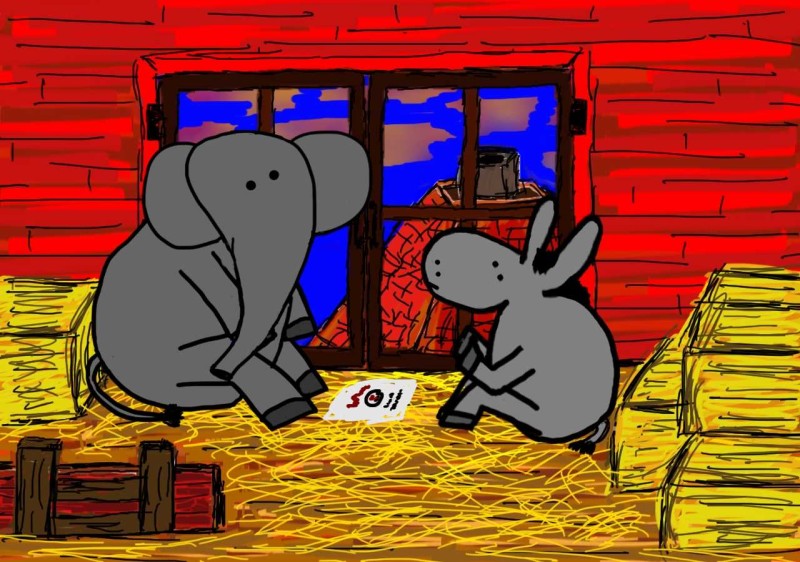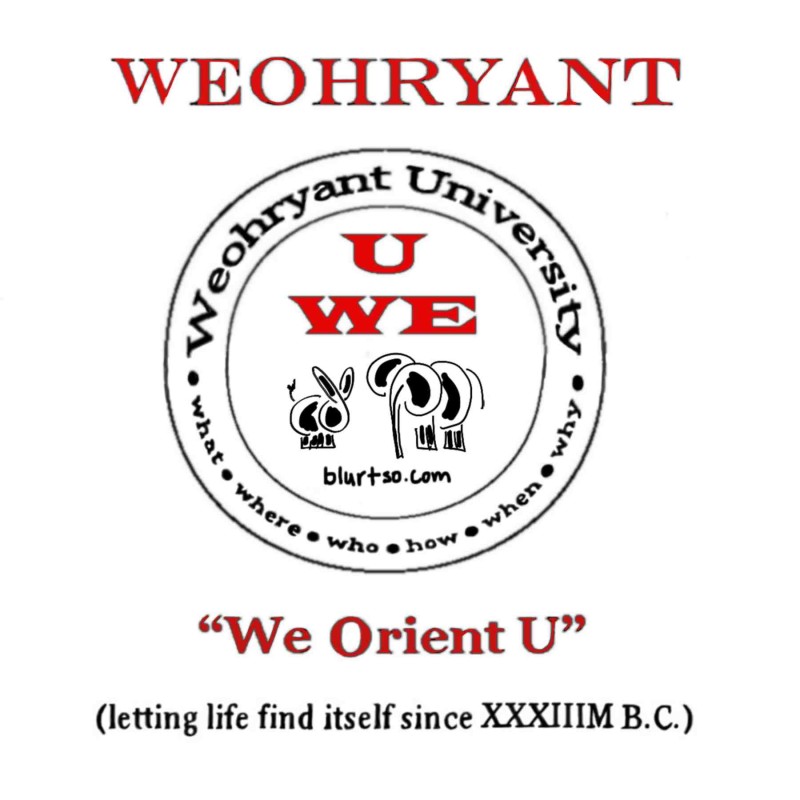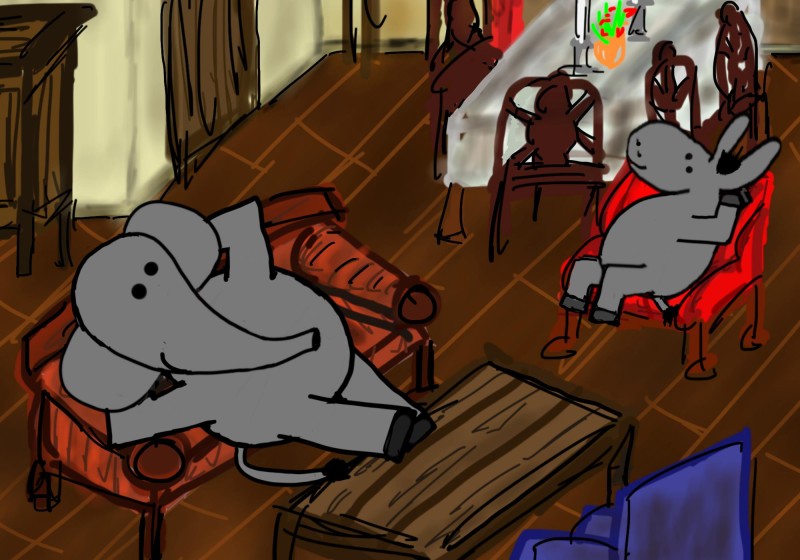Today’s question, said Pablo, is: “When is it too late?”
Too late for what? said Morton.
I didn’t do it, said Emma Lou.
Too late for planting? said Frank.
“Lateness,” said Glouster, is “arriving or remaining after the due, usual, or proper time.”
The proper time? said Chelsea. Who decides what is the proper time?
Your boss does, said Frank.
Or your teacher, said Glouster.
Or whoever makes the rules, said Morton.
Whoever has the power, said Emma Lou.
Michel Foucault, said Glouster, said: “The strategic adversary is fascism… the fascism in us all, in our heads and in our everyday behavior, the fascism that causes us to love power, to desire the very thing that dominates us.
Am I a fascist? said Chelsea.
I don’t think you’re a fascist, said Morton.
What’s a fascist? said Frank.
“Fascism,” said Glouster, is “a political philosophy, movement, or regime that exalts nation and often race above the individual and stands for a central autocratic government headed by a dictatorial leader, severe economic and social regimentation, and forcible suppression of opposition.”
That doesn’t sound like me, said Chelsea.
It can also mean, said Glouster, “a tendency toward or actual exercise of strong autocratic or dictatorial control.”
Dictatorial control? said Morton.
A dictator, said Glouster, is “someone granted absolute power, often ruling oppressively.”
Do I have absolute power? said Chelsea.
Foucault goes on to say, said Glouster, “It is my hypothesis that the individual is not a pre-given entity which is seized upon by the exercise of power. The individual, with his identity and characteristics, is the product of a relation of power exercised over bodies, multiplicities, movements, desires, forces.”
Seized on by the exercise of power? said Frank.
Does that mean, said Chelsea, that I’m a victim.
Both a victim, said Emma Lou, and a dictator.
Foucault adds, said Glouster, that “there is no power relation without the correlative constitution of a field of knowledge, nor any knowledge that does not presuppose and constitute at the same time power relations.”
Isn’t that a vicious circle? said Chelsea.
Yes, said Glouster.
How did we get caught, said Frank, in this vicious circle?
We were talking, said Emma Lou, about who decides what is too late and what is not too late.
Sometimes, said Frank, nature decides what is too late.
Yes, said Morton, like when it’s too late to plant pumpkins in order to have a good harvest in the fall.
Does that mean, said Chelsea, that nature is a fascist?
A fascist, said Emma Lou, that desires to be exploited by itself.
But I am a part of nature, said Morton. Does that mean I’m constantly exploiting myself?
Yes, said Emma Lou.
So if I grow a pumpkin, said Morton, then make a pumpkin pie, then eat it, I’m exploiting myself?
Yes, said Emma Lou.
In that case, said Morton, I should try to exploit myself more often.
When is it too late, said Chelsea, to plant pumpkins for a good harvest?
I don’t know, said Morton, I’ve never planted a pumpkin.
You haven’t? said Chelsea.
No, said Morton, I’ve always exploited the pumpkin someone else planted.
That’s shameful, said Chelsea.
Is it? said Morton.
What if, said Emma Lou, the person who planted the pumpkin derived pleasure from Morton’s exploitation of the pumpkin?
You mean, said Frank, the pleasure one gets from sharing with someone else?
Exactly, said Emma Lou.
That’s a good question, said Chelsea.
What would Foucault say? said Frank.
I’m not sure, said Glouster, I suppose he would say that the act of sharing is an act of exploitation, a disguised power-play designed to manipulate the recipient into a position of gratitude and subservience.
I think, said Chelsea, the world would be a better place if more of us went around exploiting each other by sharing.
Tag: socratic method
“Weohryant University” (XI) – What 101
Welcome, said Blurtso, to “What 101.” The question for today’s class is: “What’s that smell?”
What’s that smell? said Glouster.
I didn’t do it, said Emma Lou.
I don’t smell anything, said Frank.
I do, said Morton.
So do I, said Chelsea, it smells like jasmine.
It also smells like pumpernickel, said Morton, or a field of wheat before it rains.
Yes, said Chelsea, or a riverbed of Alabama clay.
I don’t smell anything, said Frank.
You can’t trust your senses, said Glouster, everyone has a different sense of smell.
That’s what the Upanishads say, said Emma Lou.
The Upanishads? said Morton.
Yes, said Emma Lou, the Upanishads say that the world perceived by the senses is maya.
Maya? said Chelsea.
Yes, said Emma Lou, separate smells and sights and things only exist as the condition of perception. They are an illusion. At the subatomic level they dissolve into a flux of energy.
Does an odor exist, said Frank, if you can’t smell it?
Does an odor exist, said Emma Lou, if you can smell it?
Maybe, said Glouster, we should consult Avery Gilbert’s book, The Science of Scent in Everyday Life. Or Patrick Suskind’s novel, Perfume.
Perfume? said Morton.
Yes, said Glouster, a novel about the emotional meanings that scents carry. The protagonist is a perfume-maker in 18th century France.
I love perfume, said Chelsea.
I can’t smell perfume, said Frank.
There’s another novel about smell, said Glouster, in which a man takes a bite of a cookie that makes him remember his childhood and the life he’s lived.
What’s it called? said Emma Lou.
Á la recherche du temps perdu, said Glouster, by Marcel Proust.
What kind of cookie does he eat? said Morton.
A Madeleine, said Glouster.
What’s a Madeleine? said Morton.
A Madeleine, said Glouster, is a buttery sponge cake.
I love sponge cake! said Chelsea. Why can’t we read a book about sponge cake instead of the Bible and the Quran and the Upanishads?
There’s a donkey in the Bible, said Morton.
There is? said Chelsea.
Yes, said Morton, Jesus entered Jerusalem on a donkey.
There are donkeys in the Quran too, said Glouster.
There are? said Chelsea.
I still don’t smell anything, said Frank.
I do, said Chelsea, it smells like something sweet.
Maybe Bonny is baking a pie! said Morton.
No, said Glouster, that’s only on Thursdays.
If we can’t trust our senses, said Chelsea, what can we trust?
“To smell,” said Glouster, is “to perceive the scent of something by means of the olfactory nerves.”
Isn’t that circular, said Emma Lou, to say, “to smell is to perceive scent”? It doesn’t explain anything.
If you smell something before you eat it, said Morton, it gives you an idea of what it’s going to taste like.
Sponge cake smells sweet, said Chelsea.
So do chocolate chip cookies, said Morton.
I’ve never had a chocolate chip cookie, said Frank. What do they taste like?
It’s hard to describe, said Morton, to someone who has never tried one.
“To taste,” said Glouster, is “to ascertain the flavor of something by taking a little into the mouth.”
That doesn’t tell me what it tastes like, said Frank. Does it taste like a worm?
A worm? said Morton. I don’t know, I’ve never tasted a worm.
Does everything, said Chelsea, taste different to everyone?
That’s a good question, said Frank.
Did anyone bring cookies? said Morton.
“The senses,” said Glouster, are “the physiological capacities of organisms that provide data for perception.”
Data for perception? said Frank. Does that mean we don’t actually perceive things themselves, we only perceive data?
Every time I perceive the data called smoke, said Morton, it reminds me of when I was tethered in a barn and the barn caught fire and someone rushed in to save me before I was burned alive.
That must have been terrifying! said Emma Lou.
Every time I perceive the data called smoke, said Chelsea, it reminds me of roasted chestnuts on the Mass. Ave Bridge.
“Harvard Bridge?” said Morton.
Yes, said Chelsea, in December.
From a man in a green overcoat? said Morton.
Yes, said Chelsea, and on Saturdays he brings his daughter.
Those are excellent chestnuts, said Morton.
But you can’t eat them at once, said Chelsea, because they’re too hot, so you have to wait, but you can’t wait, so you eat them and they burn your tongue.
The data burns your tongue, said Morton.
When I perceive the data called smoke, said Frank, I fly in the opposite direction.
I dive underwater, said Glouster.
Really? said Chelsea. I wish I could swim.
You can’t swim? said Glouster.
No, said Chelsea, I don’t think so.
It’s easy, said Glouster, you just paddle around, and then dive down when you see something to eat.
Like what? said Chelsea.
Like a fish, said Glouster.
I couldn’t catch a fish, said Morton.
Neither could I, said Chelsea.
Some animals are not fishers, said Frank.
The Apostles of Jesus, said Glouster, were fishers of men.
Fishers of men? said Emma Lou.
Yes, said Glouster, they used the holy word of God to entice people to open their hearts and love their neighbors.
Just like in the Upanishads, said Emma Lou.
Is that in the Bible? said Chelsea. I’ve been reading the Mahabharata. It starts with a story about a girl who is turned into a fish. And then she has children that smell like fish.
Even I can smell a fish, said Frank.
Then a wise man called a “rishi”, said Chelsea, becomes obsessed with the girl’s smell and makes love to her.
I don’t like the smell of fish, said Morton.
What smells bad for one person, said Emma Lou, smells good for another.
Fish must like the smell of fish, said Chelsea.
They sure do taste good, said Glouster.
Yes, said Frank, especially when they’ve been baking in the sun for a while, on the side of the road, or in a ditch near a field.
I’m sorry to interrupt, said Blurtso, but we’re out of time. I hope you enjoyed the first day of class. Thank you for your interesting comments and questions.
Thank you, said Emma Lou, you’re an excellent teacher.
“Weohryant University” (IX)
Teaching is a tremendous responsibility, said Blurtso. Yes it is, said Harlan. What if I’m no good at it? said Blurtso. You’ll be fine, said Harlan. What if my students ask questions I can’t answer? Then tell them you don’t know, said Harlan. Can I do that? said Blurtso. Of course, said Harlan. I thought a teacher was supposed to know all the answers, said Blurtso. No, said Harlan, a teacher is supposed to know the questions. The questions? said Blurtso. Yes, said Harlan, the questions are more important than the answers. They are? said Blurtso. Certainly, said Harlan. Why? said Blurtso. Because many questions, said Harlan, have many answers, and others have no answer at all. So all I have to do is ask questions? said Blurtso. Yes, said Harlan. What kind of questions? Good questions, said Harlan, questions that make your students consider things they’ve never considered. How do I do that? said Blurtso. It’s easy, said Harlan, just do what you’re doing right now. What I’m doing right now? said Blurtso. Yes, said Harlan, asking questions.
“Weohryant University” (II)
What do you think, said Harlan, of the logo for our university?
Weohryant? said Blurtso. Yes, said Harlan, pronounced “we-orient.” What does it mean? said Blurtso. It’s a word, said Harlan, made up of all the different letters in the question words “what, where, who, how, when, why”, and it’s also a combination of “we” (short for “west”) and “ohryant” (orient or “east”). And, said Blurtso, it combines U (you) and WE, which gives our university an inclusive feel. Exactly, said Harlan. What, said Blurtso, is that Roman numeral. That, said Harlan, can either be read as 967 (1000 – 33) or 33,000. Which is it? said Blurtso. It really doesn’t matter, said Harlan, as long as it expresses a sense of tradition and substance, but 33,000 B.C. is an approximate date for the beginning of written language on earth. I like it, said Blurtso, and the donkey looks attentive and energetic, while the elephant looks very professorial.
Get your official Weohryant sweatshirt at blurtsobarn
“Weohryant University” (I)
The house is very empty since I moved into the barn, said Blurtso. Why did you move? said Harlan. It was cozier, said Blurtso. Classes start next week, said Harlan. Yes, said Blurtso, it’s too bad Harvard isn’t more like this. Like this? said Harlan. Yes, said Blurtso, just sitting around talking. It’s sort like that, said Harlan. Yes, said Blurtso, but I’d prefer something less rigid, with smaller classes. How much smaller? I don’t know, said Blurtso, maybe five or six students, just sitting around talking, maybe answering some questions. What kind of questions? said Harlan. Any kind, said Blurtso. How about yes/no questions? said Harlan. No, said Blurtso, those are too limiting. How about the 5 w’s and 1 h questions? said Harlan. What? said Blurtso. Yes, said Harlan, “what” is the first of the w questions. It is? said Blurtso. Yes, said Harlan, the 5 w’s are “what, who, when, where, why,” and the h question is “how.” Why, said Blurtso, don’t they call them the 6 w&h questions? That’s a good question, said Harlan. See what I mean, said Blurtso, why can’t there be a university where students just sit around talking like we are? I suppose there can, said Harlan. How? said Blurtso. We could start one ourselves, said Harlan. A university? said Blurtso. Sure, said Harlan. Where? said Blurtso. Anywhere, said Harlan, here in the house, or in the barn, or in the park. Who would teach the classes? said Blurtso. We would, said Harlan. I like it! said Blurtso. When can we start? We can start right now, said Harlan. Let’s do it! said Blurtso.
